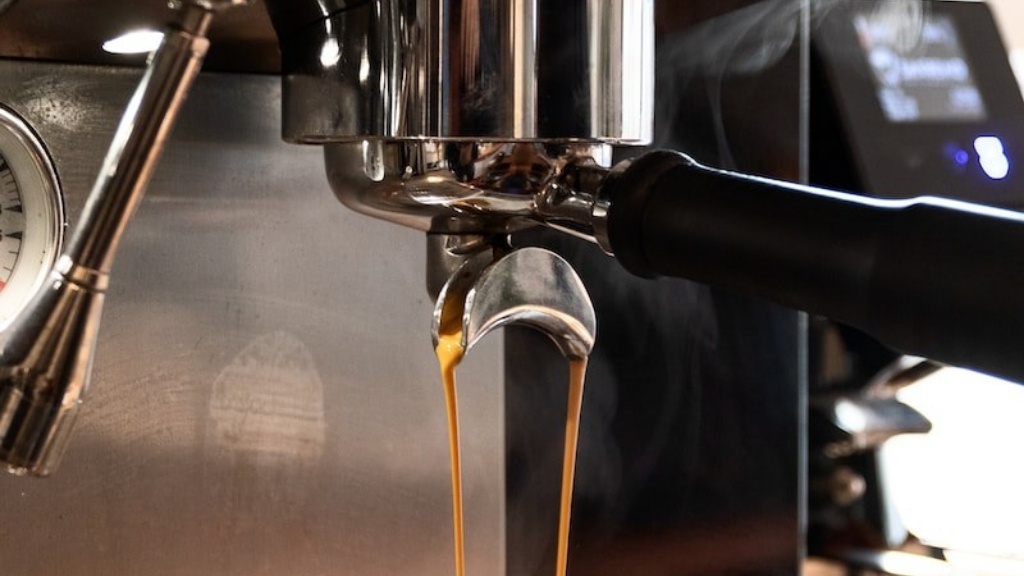Understanding the Consequences of Drinking Coffee Before Brushing Teeth
Coffee is a popular beverage worldwide, and it’s not uncommon for people to enjoy coffee and coffee-related drinks before brushing their teeth. But is it a bad idea to drink coffee and then brush your teeth?
Coffee contains a number of different compounds that interact with tooth enamel. It’s been shown that coffee is acidic and can dissolve the enamel on teeth if ingested in large amounts. Additionally, coffee contains tannins, which help stain teeth permanently and make them more prone to further plaque buildup. And since coffee is often consumed with artificial sweeteners, the sugar in these sweeteners can also cause staining and cavities.
From a hygiene perspective, drinking coffee before brushing your teeth can be a bit of a gamble. If you consume too much coffee and then brush your teeth right away, you could damage the enamel and irritate your gums. What’s more, the acidity of the coffee can break down the protective film on teeth, making them more susceptible to bacteria and decay.
According to the American Dental Association (ADA), it’s best to wait at least 30 minutes after drinking coffee before brushing your teeth. This is because acids from the coffee can be absorbed into the enamel during this time, which reduces their effectiveness. In addition, waiting half an hour can help prevent abrasion and wear of the enamel from brushing too soon.
When it comes to drinking coffee and then brushing your teeth, it could prove beneficial to wait. Brushing your teeth right after drinking coffee can be counterproductive, because it can damage the enamel and contribute to sensitivity, discoloration and cavities.
It’s best to wait 30 minutes after drinking coffee before brushing. This helps protect your enamel from being damaged and degraded by the acid in the coffee. If you drink more than one cup of coffee in a day, remember to rinse your mouth out with water between each cup.
The Role of Dental Hygiene in Maintaining Oral Health
Dental hygiene is essential for maintaining healthy teeth and gums. As well as following the advice outlined above, taking steps to keep your teeth and gums clean can reduce the risk of tooth decay, gum disease, and other dental health issues.
The most important step towards good dental hygiene is brushing and flossing regularly—at least twice a day—with a fluoride-containing toothpaste. Brushing your teeth removes bacteria, plaque, and other debris that can cause tooth decay. Flossing helps remove plaque and food particles trapped between teeth and helps prevent gum disease.
In addition, using an interdental brush or a water flosser can help keep areas between teeth clean, while tongue scrapers help remove a layer of bacteria that can form on the tongue. Regular visits to the dentist are also important for diagnosing any issues early and to help with preventive care.
Dental hygiene helps protect teeth from damage and decay and help keep gums healthy. It’s important to remember that drinking coffee before brushing your teeth could increase the risk of damage and decay, and should be avoided whenever possible.
Important Considerations When Brewing Coffee
Brewing coffee with the right methods can help reduce the risk of damage when drinking coffee before brushing your teeth. Coffee made with filtered water instead of boiled water contains fewer compounds that can interact with tooth enamel, so opt for cold brew coffee or pour-over coffee instead of espresso or stove brewed.
Furthermore, using a light-to-medium roast of coffee beans will help reduce the amount of compounds that dissolve into the coffee, and adding milk and sugar to the coffee can also reduce acidity and help even out the flavour. If you’re looking for a healthier option, try adding a splash of almond, coconut, or oat milk instead of cow’s milk.
Brewing coffee with the right methods and ingredients can help reduce the potential for damage to tooth enamel if consumed before brushing. Taking these steps can help keep your teeth healthy and reduce the risk of cavities, plaque and decay.
Are There Alternatives to Coffee?
If you’re looking for an alternative to coffee that won’t damage your teeth, consider matcha green tea or hibiscus tea. Both are full of antioxidants that help protect the teeth and gums and have anti-inflammatory properties. Matcha green tea also has a slightly grassy flavour and can assist with weight management, and hibiscus tea may help reduce high blood pressure and improve digestion.
Additionally, herbal teas such as peppermint and ginger tea contain compounds that can help reduce sensitivity and promote healthy teeth, while chamomile tea can help relieve stress and promote better sleep. Herbal teas are also an excellent replacement for coffee and can be a great way to get your daily dose of antioxidants.
For a healthy alternative to coffee, there are many different herbal teas to choose from that can help protect your teeth and promote better overall health. All it takes is a bit of exploration and experimentation to find one you enjoy.
Lifestyle Choices and Oral Health
Your lifestyle can have a significant impact on the health of your teeth and gums. Eating a balanced diet full of fresh fruits and vegetables, limiting sugary and acidic foods, and avoiding tobacco products can all help keep your teeth healthy. Additionally, drinking plenty of water and getting enough sleep will help promote healthy teeth as well.
Exercising also plays an important role in oral health. Certain exercises such as yoga and Pilates can help increase blood flow to the mouth and reduce inflammation, while strength training and running can help strengthen the teeth and reduce the risk of periodontal disease. Additionally, regular physical activity can help reduce stress, which can help prevent grinding and clenching of the teeth.
Making changes to your daily lifestyle can have a big impact on your oral health and help prevent damage to your teeth if you drink coffee before brushing them. Making small changes such as eating healthier and exercising more can lead to better overall dental health and well-being.
Conclusion: Damage Prevention with Coffee Before Brushing Teeth
Overall, drinking coffee before brushing your teeth carries a risk of damage to the enamel and its long-term effects on your oral health. Waiting at least 30 minutes after drinking coffee before brushing is important to give the acids time to be absorbed into the enamel, which will reduce their effectiveness. Additionally, brewing coffee with filtered water and using light-to-medium roast beans can help reduce the amount of compounds that can interact with tooth enamel.
Choosing alternatives such as herbal teas, making changes to your daily lifestyle, and following a good oral hygiene regimen can all help reduce the risk of damage to your teeth when consuming coffee before brushing. Taking the necessary steps and being mindful of the potential consequences of drinking coffee before brushing can help keep your teeth healthy and vibrant for years to come.





